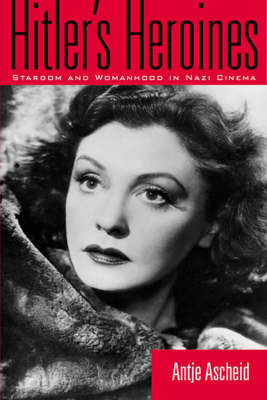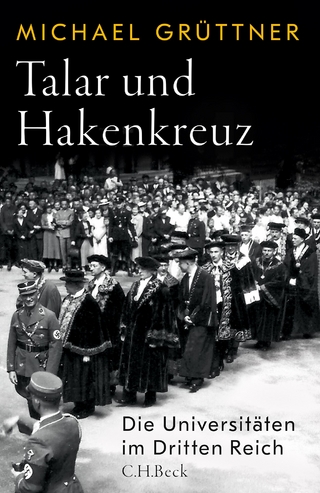
Hitler's Heroines
Stardom and Womanhood in Nazi Cinema
Seiten
2003
Temple University Press,U.S. (Verlag)
978-1-56639-983-8 (ISBN)
Temple University Press,U.S. (Verlag)
978-1-56639-983-8 (ISBN)
- Keine Verlagsinformationen verfügbar
- Artikel merken
Features the brightest stars in fascist films.
German film-goers flocked to see musicals and melodramas during the Nazi era. Although the Nazis seemed to require that every aspect of ordinary life advance the fascist project, even the most popular films depicted characters and desires that deviated from the politically correct ideal. Probing into the contradictory images of womanhood that surfaced in these films, Antje Ascheid shows how Nazi heroines negotiated the gender conflicts that confronted contemporary women. The careers of Kristina Soderbaum, Lilian Harvey, and Zarah Leander speak to the Nazis' need to address and contain the "woman question," to redirect female subjectivity and desires to self sacrifice for the common good (i.e., national socialism). Hollywood's new women and glamorous dames were out; the German wife and mother were in. The roles and star personas assigned to these actresses, though intended to entertain the public in a politically conformist way, point to the difficulty of yoking popular culture to ideology. Author note: Antje Ascheid is Assistant Professor in the Department of Drama and Theater at the University of Georgia.
German film-goers flocked to see musicals and melodramas during the Nazi era. Although the Nazis seemed to require that every aspect of ordinary life advance the fascist project, even the most popular films depicted characters and desires that deviated from the politically correct ideal. Probing into the contradictory images of womanhood that surfaced in these films, Antje Ascheid shows how Nazi heroines negotiated the gender conflicts that confronted contemporary women. The careers of Kristina Soderbaum, Lilian Harvey, and Zarah Leander speak to the Nazis' need to address and contain the "woman question," to redirect female subjectivity and desires to self sacrifice for the common good (i.e., national socialism). Hollywood's new women and glamorous dames were out; the German wife and mother were in. The roles and star personas assigned to these actresses, though intended to entertain the public in a politically conformist way, point to the difficulty of yoking popular culture to ideology. Author note: Antje Ascheid is Assistant Professor in the Department of Drama and Theater at the University of Georgia.
ANTJE ASCHIED is an Assistant Professor in the Department of Drama and Theater at the University of Georgia.
Preface Introduction 1. Nazi Culture? National Socialism, Stardom, and Female Representation 2. Kristina Soderbaum: The Myth of Naturalness, Sacrifice, and the "Reich's Water Corpse" 3. Lilian Harvey: International Stardom, German Comedy, and the "Dream Couple" 4. Diva, Mother, Martyr: The Many Faces of Zarah Leander 5. Conclusion Notes Bibliography Index
| Erscheint lt. Verlag | 28.2.2003 |
|---|---|
| Reihe/Serie | Culture & the Moving Image |
| Zusatzinfo | 37 b&w halftones |
| Verlagsort | Philadelphia PA |
| Sprache | englisch |
| Maße | 152 x 229 mm |
| Themenwelt | Kunst / Musik / Theater ► Film / TV |
| Geschichte ► Allgemeine Geschichte ► 1918 bis 1945 | |
| Geisteswissenschaften ► Geschichte ► Regional- / Ländergeschichte | |
| Sozialwissenschaften ► Soziologie ► Gender Studies | |
| ISBN-10 | 1-56639-983-1 / 1566399831 |
| ISBN-13 | 978-1-56639-983-8 / 9781566399838 |
| Zustand | Neuware |
| Haben Sie eine Frage zum Produkt? |
Mehr entdecken
aus dem Bereich
aus dem Bereich
ein Psychologe erlebt das Konzentrationslager
Buch | Hardcover (2024)
Kösel (Verlag)
22,00 €
die Universitäten im Dritten Reich
Buch | Hardcover (2024)
C.H.Beck (Verlag)
44,00 €


